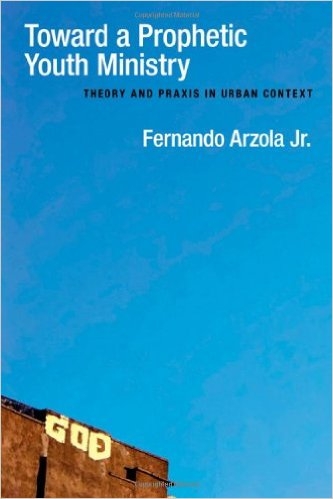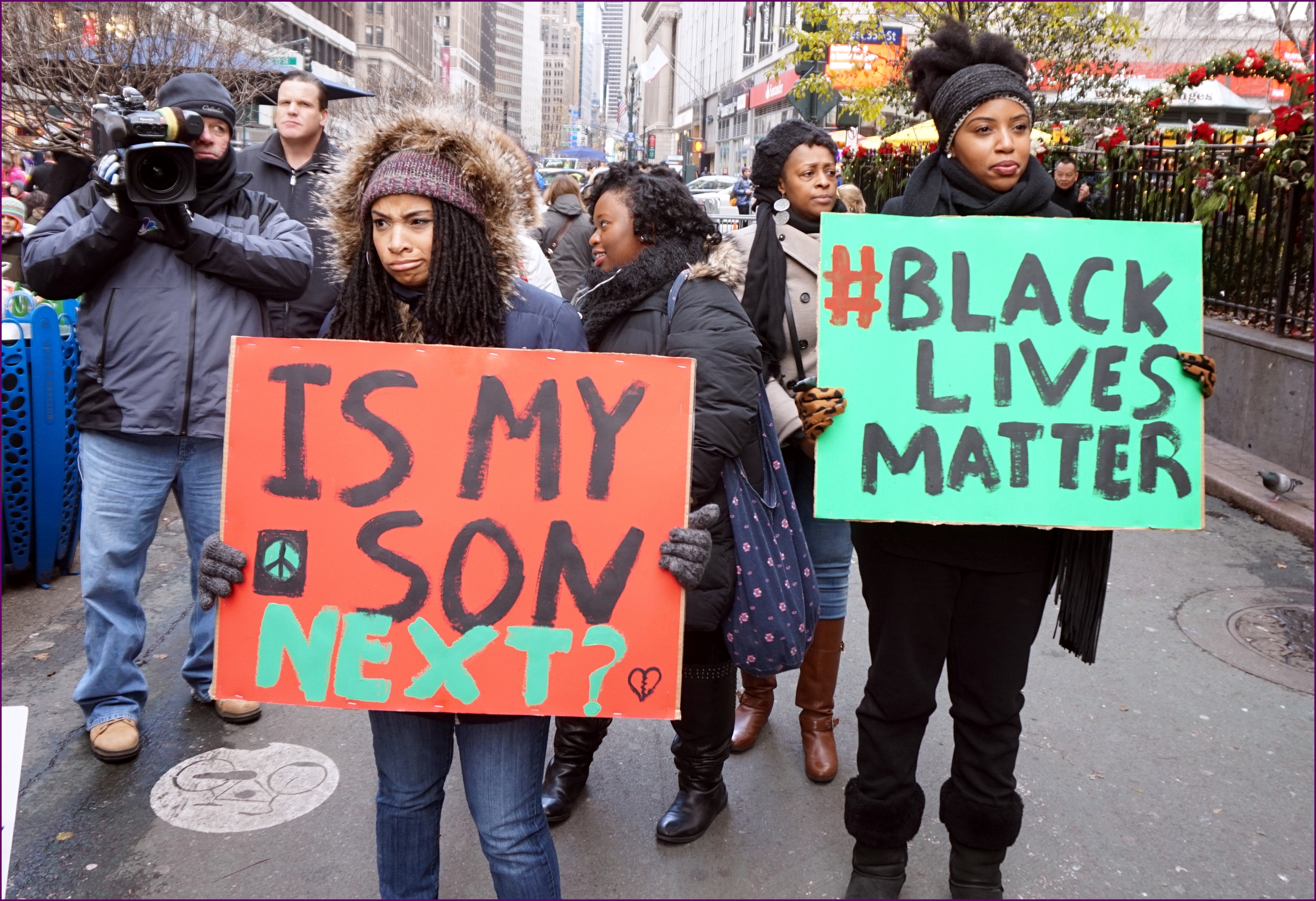“Why is that Christianity seems so impotent to deal radically, and therefore effectively, with issues of discrimination and injustice on the basis of race, religion and national origin?”
Howard Thurman, Jesus and the Disinherited, 1949
2014 and 2015 will easily go down in history as two of the most shocking years of the decade. Immigration to Black Lives Matter, legalization of gay marriage and its ramifications on college campuses around the country and it places of faith, we have seen a lot. Do we respond to these issues? How do we respond to these issues? How are they to be included in how we disciple students and the people we lead? These issues are a part of and influence our lives, whether directly and indirectly. To ignore them, is to ignore context in which students live, and our words can quite easily become “word sown along the path” as it doesn’t translate to the practical life.
 One resource that I believe will prove to be invaluable in the days ahead is Toward a Prophetic Youth Ministry by Fernando Arzola (IVP). He walks through four ministry models, where the focuses are on either the traditional, liberal, or social needs (systemic issues) of people. His fourth, and “prophetic,” model suggests not the separation but the amalgamation of these issues—a discipleship that is not only epistemological but ethical, one that ministers to the total person. The book deals primarily with youth ministry in urban youth in church ministries, but it is highly transferable to ministry within InterVarsity. Here’s a brief synopsis of each model. I encourage you to reflect on your own leadership style, where there’s room to grow, and what catches you by surprise. I encourage you to not look at the list as an explanation of “what’s wrong with that other group.”
One resource that I believe will prove to be invaluable in the days ahead is Toward a Prophetic Youth Ministry by Fernando Arzola (IVP). He walks through four ministry models, where the focuses are on either the traditional, liberal, or social needs (systemic issues) of people. His fourth, and “prophetic,” model suggests not the separation but the amalgamation of these issues—a discipleship that is not only epistemological but ethical, one that ministers to the total person. The book deals primarily with youth ministry in urban youth in church ministries, but it is highly transferable to ministry within InterVarsity. Here’s a brief synopsis of each model. I encourage you to reflect on your own leadership style, where there’s room to grow, and what catches you by surprise. I encourage you to not look at the list as an explanation of “what’s wrong with that other group.”
Traditional. A traditional ministry focuses primarily on the spiritual needs of students. It focuses on discipleship and engages programs like bible study, evangelism, and outreaches/NSO. It’s rooted in Jesus’ teaching, but is concerned only with winning souls, and omits the social issues of the world. Conflict is often avoided for maintaining peace, and Arzola suggests this model is more like the Pharisees (believed in being separate from non-Jewish neighbors, committed to moral purity, and leaned toward legalism). Jesus preached here is Savior and Lord, but never has anything to say about what happens outside the four walls of a ministry.
Liberal. A liberal ministry focuses on the personal and emotional needs of students. (I know some of us steer clear of these areas, but that doesn’t mean they will go away on their own or that they don’t need to be submitted to the authority of Jesus.) It focuses on personal growth engages programs like mentoring, and trips (either vacation for inner city kids or community service). It’s rooted in addressing personal needs of people and typically emphasizes Jesus’ humanity over divinity. Conflict is seen as a part of evolution/change and Arzola suggests this model is more like the Sadducees (highly educated, didn’t believe in the spiritual life/resurrection of Jesus). Jesus preached here is a good friend, but He isn’t Savior or Lord.
Activist. An activist ministry focuses on the social needs of students. It focuses on social action/justice, food drives, economic empowerment, job training, and ethnic-celebrations [at the expense of marginalizing other ethnic groups]. It’s rooted in addressing systemic injustice and social sin. It is overly concerned with fighting systems rather than growing in Christ. Conflict is expected as social issues are confronted and this group at times creates conflict in order for change to occur. Arzola suggests this model is more like the Zealots (engaged and supported overthrowing the Roman government; they wanted a revolutionary messiah). Jesus preached here is an activist, but again, isn’t Savior and Lord.
Prophetic. A prophetic ministry focuses on transformation—how can students be transformed holistically (spiritually, personally, and socially)? It has integrated models that combine programs from all three previously mentioned models—again, with emphasis on caring for the whole person. Ministry from this model is concerned about the salvation of a person’s soul, the increasing Lordship of Christ over that person’s decisions, the ethnic/economic/historical context in which the person lives, and the invading kingdom of God to demolish and transform any systems of injustice that led to the marginalization and/or oppression of the community from which this person came. Conflict is seen as at times as constructive dissonance that fosters communal health and maturity. Arzola suggests this ministry model is the prophets (they asked for spiritual, personal, and societal repentance).
The biblical basis he offers for a prophetic ministry is Luke 10:27, ““Love your God with all your heart and with all your soul and with all your strength and with all your mind, and your neighbor as yourself.”
| Areas | Needs of Urban Youth | Possible Programs | Reflective Questions |
| Heart | Spiritual | Bible study, retreats, spiritual disciplines, prayer services | Am I developing my devotional habits? |
| Soul | Emotional | Support groups, mentoring programs, guest speakers, rap sessions | Am I maturing emotionally? |
| Strength | Physical | Sports tournaments, gym nights, nutrition lessons, health fairs | Am I taking care of my body? |
| Mind | Intellectual | Tutoring, homework helps, academic empowerments classes | Am I continuing to learn and study new things? |
| Neighbor | Social | Service projects, food pantry, trips, college visits | Am I reaching out to others, especially the poor and the marginalized? |
| Self | Moral | Sessions on moral living, healthy sexuality, relationships, etiquette | Am I living a moral lifestyle? |
#BlackLivesMatter. It’s just about everywhere in the United States, and even some parts of the world. Whether people understand, agree, or disagree with the movement, the fact remains we have different options on ethnicity and culture in the United States. These differences are not limited to Ferguson, CNN, or Facebook, they are also in our chapters.
If we want to have a truly multi-ethnic chapter, if we want to have relevant ethnic-specific chapters, if you are unaware how to intersect the spiritual life, the personal life, and the social (or societal) life of students, these issues must be engaged in our discipleship with students. To avoid them is to not contextualize the gospel to today and we leave incomplete the great commission.
How You Can Respond
- Buy Towards a Prophetic Youth Ministry
- Wrestle with the questions he raises in your own ministry models.
- Raise your awareness of the issues, take action on a particular issue, and become an advocate where you invite other people to join you on the journey or being a world-changer.
This is a guest post by Sean M. Watkins. He is Red River Regional Black Campus Ministry (BCM) Coordinator. You can hit him up on twitter at @seanisfearless. He’d love to engage with you!

Sign up to receive our blog posts via e-mail and get instant access to our APE Library with videos, seminars, leaders notes, and more.


